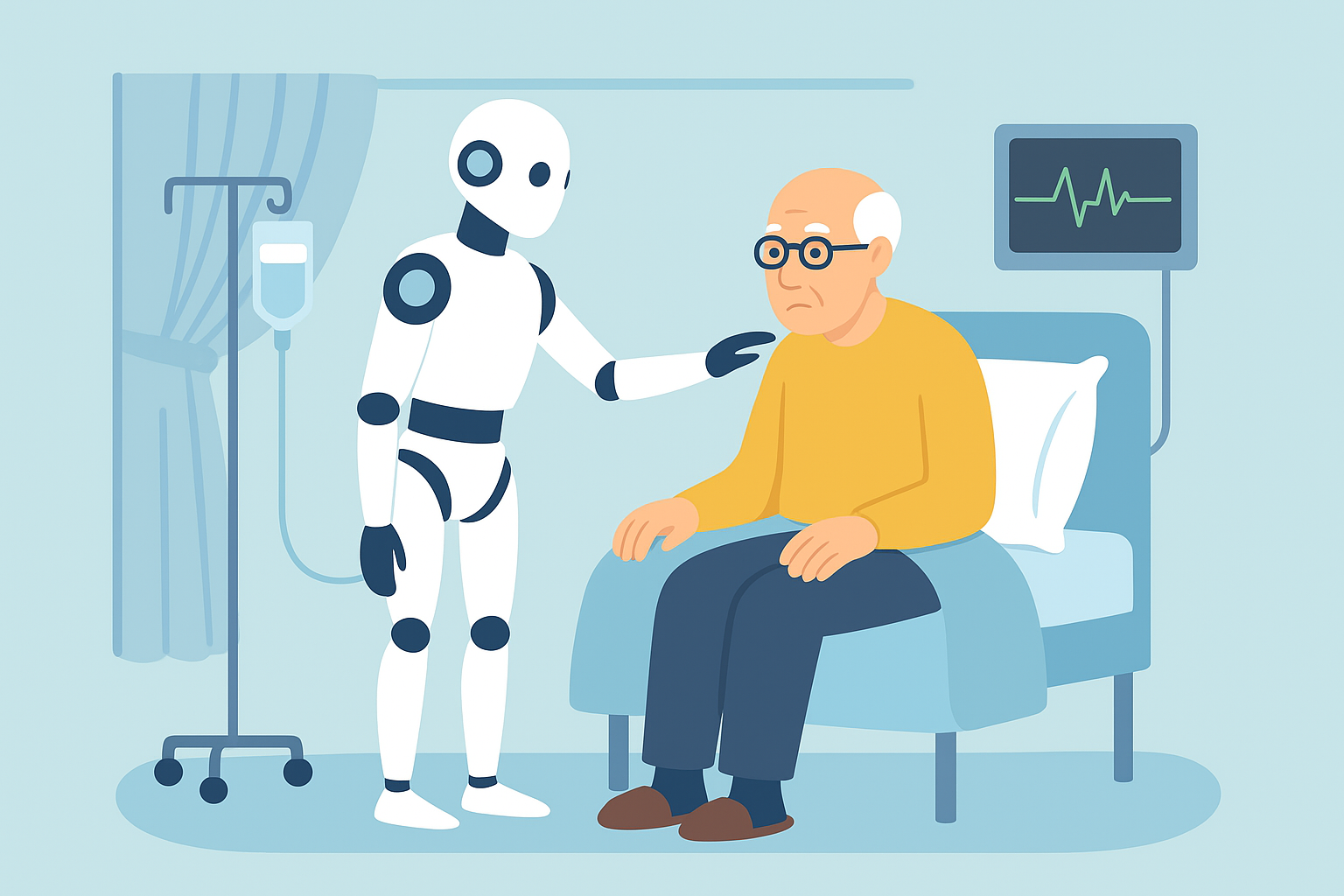New government plan uses robots to say YES or NO to older adults who need medical care – families are very angry and scared. Millions of older Americans will soon be part of a potentially hazardous government experiment. Computer programs might decide if they live or die.
Starting January 1, 2026, a new program called WISeR will begin in six states. This will significantly impact Medicare in a negative way. The scary program – which angry people call ‘robot death panels’ – will make doctors ask computer programs for permission before they can help patients. This includes knee surgeries, nerve treatments, and other medical help.
For 60 years, Medicare has been a promise to seniors: if you need medical care, you get it. No questions. No problems. No insurance company in your way.

The six states that will be hurt are New Jersey, Ohio, Oklahoma, Texas, Arizona, and Washington. More than 30 million seniors in these states will now have robot programs making choices about their healthcare.
Your family doctor will no longer be able to decide your treatment. Instead, they will have to ask government workers who will put your medical information into computer programs. These programs have one goal: to save money by forgoing medical care.
The computer will review your health records and determine if you are ‘worth’ of treatment. If the computer says no, you will be left in pain while people far away argue about your case.
Health experts are apprehensive about what this means for grandparents.
One expert said, “These companies get paid to save money. This means they want to say NO to medical care.”

This is happening at a bad time. More older adults need Medicare than ever before. Now they are being told that computer programs – the same technology that makes mistakes with food orders – will decide if they get life-saving treatments.
The government says doctors who have their requests approved frequently will receive ‘gold card’ status. This means they can skip some paperwork. But smart people see this as a trap – reward doctors who don’t ask for ‘too much’ treatment for their patients.
What happens to doctors who fight for their patients? What happens when they refuse to play the computer’s game? Their patients could wait forever for treatment, while time runs out.
Congress members are furious about this plan. They say the government is putting company profits over patients’ lives. They say Medicare is becoming a computer lottery where programs gamble with people’s health.
For families everywhere, the message is alarming: your loved one’s life will now depend on computer programs built to cut costs, not save lives.
Think about telling your 85-year-old mother that she can’t get her knee replacement because a computer decided she’s not worth the money. Think about explaining to your grandfather that his pain medicine was rejected by a robot system that has never felt pain.
This isn’t about stopping waste – it’s about giving less care to America’s older people.
This test program is the biggest experiment on seniors’ healthcare in modern American history. If it saves money, you can be sure it will be adopted by all states. This will turn every Medicare patient into a number in a government spreadsheet.
WHAT HAPPENS NEXT
Starting in 2026, millions of seniors in the six test states will find out that doctor visits now come with a new and alarming question: “Will the robot approve your treatment?”
The program will run until 2031. This gives the government six years to perfect its computer rationing system before it might be used on all 65 million Medicare patients nationwide.
For America’s seniors, the message is clear: you’re no longer patients who deserve care – you’re just numbers in a government budget that needs to be cut.
The promise of Medicare – safe healthcare when you get old – is about to be broken by computer programs that see dollar signs instead of human lives.
The government says this will stop waste and fraud. But seniors know the truth: this is really about saving money by denying medical care to people who worked their whole lives and deserve better.
When computer programs start deciding who gets treatment and who doesn’t, we have crossed a hazardous line.

